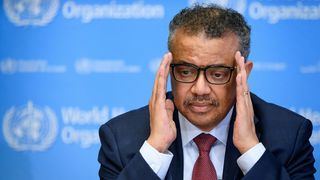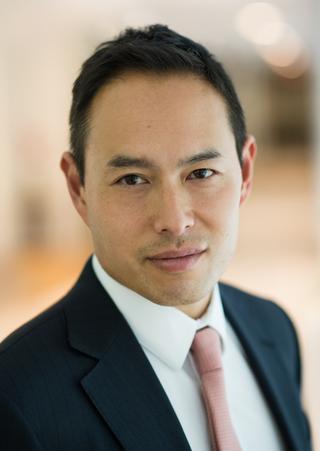Donald Trump’s complaints about the World Health Organization are credible and his anger towards its chief, Tedros Adhanom Ghebreyesus, is understandable. The WHO demonstrated poor leadership in failing to deliver on its mission of serving as an early warning system for global health threats such as COVID-19. In the critical month of January, Tedros appeared more eager to downplay the threat while praising China’s President Xi Jinping, when the facts told a very different story and the world needed to know the truth.
Even so, the US President has made a tactical error. There ought to be a reckoning for the organisation and its unrepentant leadership over this unfolding nightmare. But announcing an immediate halt to funding the WHO while the administration conducts a review has damaged the prospects that the US can lead meaningful change after the pandemic subsides.
The WHO demonstrated poor leadership in failing to deliver on its mission of serving as an early warning system for global health threats such as COVID-19.
To be fair to Tedros, the failures of the WHO precede his tenure as director-general. In 2005, the WHO adopted a revised set of International Health Regulations that beefed up the powers of the organisation to respond to global health threats for the benefit of member nations. The revised regulations are binding on all 194 WHO member states. The revisions were largely a response to the 2002-03 severe acute respiratory syndrome outbreak, which also began in China and spread to almost 30 nations.
Significantly, the regulations authorise the WHO to act on non-state sources of information — such as Taiwan’s warning to the WHO on December 31 that human-to-human transmission was possible — and to interrogate and ensure states release all available information about a public health issue that might be of international concern. The regulations allow the WHO to name member states when it seems they are not complying with appropriate standards of timeliness and transparency when it comes to releasing information.
The new directives were put to the test during the 2013-16 West Africa Ebola outbreak. The WHO admitted that it was slow to recognise the risks of the disease in fragile states such as Guinea, Liberia and Sierra Leone. In large part, the delay was due to pressure from the government of Guinea. The point is, the WHO demonstrated too much deference to the wishes of member states at the early stages of an outbreak, despite the binding obligations imposed by the International Health Regulations.
That the leaders of the WHO have made political decisions at odds with the mission to prevent health disasters is precisely why Trump is railing against the organisation.
That the leaders of the WHO have made political decisions at odds with the mission to prevent health disasters is precisely why Trump is railing against the organisation. It is difficult to construct a credible argument that Tedros discharged his duties satisfactorily when he praised Xi for China’s co-operation and transparency and for setting new standards in outbreak control while ignoring Beijing’s earlier failings.
This brings us back to the poor tactics in announcing a pause in US funding for the WHO. For starters, the decision to halt funding is unlikely to have an immediate effect on the organisation’s budget since the US pays its dues to the WHO at the end of each year, while tens if not hundreds of millions of dollars in voluntary contributions are likely to have already been paid this year.
Economic punishments work best when the target feels immediate financial pain. In this case, the WHO will be spared from the worst of that pain for several months and may well use the breathing space to launch a public relations counteroffensive against the Trump administration. Bear in mind that the pandemic is still gathering pace in many Asian and African economies.
Trump should have used the threat of withholding funding, rather than halting it, to demand a proper review of the WHO’s decisions vis-a-vis COVID-19.
As the decision to halt funding comes in the absence of a formal investigation into the WHO’s failings, the narrative that an angry US has abandoned the developing world will be easier to propagate, regardless of where real blame may lie.
Instead, Trump should have used the threat of withholding funding, rather than halting it, to demand a proper review of the WHO’s decisions vis-a-vis COVID-19. The endgame of a review is reform that enables the organisation to exercise leadership and initiative based on scientific and health evidence rather than bowing to the wishes of insecure and/or authoritarian states, the latter tending to prioritise regime security and prestige over public health.
Remember, the WHO is an organisation comprised of member states. For changes to occur, the US first needs support from as many nations as possible to demand an investigation into the WHO that is comprehensive as well as credible.
Alternatively, if the objective is to look beyond the WHO and come up with alternative multinational regimes, such as one funded and supported by the G7 or G20, then Trump’s sequencing is still unfortunate. To persuade other nations to support such a shift, it is better that a collective review of the WHO’s systematic failings occurs before halting and redirecting funding away from it.
A common exhortation is that one should not waste a crisis. But neither should one mismanage it.
Better tactical thinking is required to ensure that accountability is brought to bear on an organisation that is failing when it is most needed.






